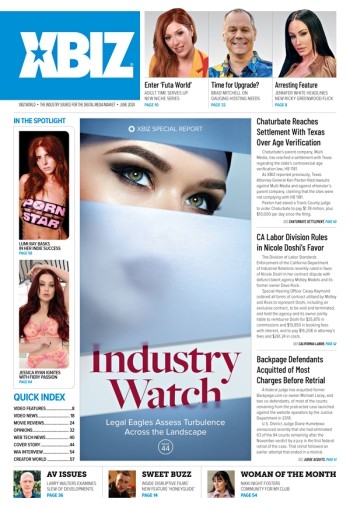The application, first uncovered by InformationWeek, describes a contextual advertising framework that is not dependent upon end-user interaction with a web page or search interface, instead displaying ads based on “a variety of resources on a local computer.”
Web marketing and advertising analyst Scott Rabinowitz told XBIZ that the system described in the Microsoft patent application represents the “potentially most invasive” adware system developed to date.
“Strictly from the perspective of serving ads, it sounds like the ultimate platform,” Rabinowitz said. “Every facet of your computer potentially could be targeted for advertising purposes. They have left no stone unturned in terms of supporting things they might want to do with it.”
In the description and summary sections of the application, Microsoft extols both the virtues and limitations of current browser-based contextual advertising systems.
“Targeting advertisements is highly valued by advertisers because it allows placement of advertisements that are theoretically of greater interest to a particular audience member than blanket advertising,” Microsoft states in its application. “Targeting advertising to a user viewing content on the Internet or web-browsing on computers creates an opportunity for an ‘audience of one.’ By analyzing what a user is performing web searches on or by watching clicks on a web portal, advertisements may be targeted to a particular user.”
The problem with web-based contextual advertising, according to Microsoft’s patent application, is that such advertising is “limited to targeting based on a user's interaction with a webpage or search application in communication with a portal or search engine.”
As described in the application, Microsoft’s adware system would expand significantly the menu of criteria on which advertisers could base their contextual advertising to end users. The summary section of the application states that an “advertising framework may reside on a user computer, whether it’s a part of the OS, an application or integrated within applications.”
While current adware systems rely primarily on browser-based activity for both collecting contextual data and displaying ads, Microsoft’s system would plumb other peripherals for both data collection and ad display.
“An application, such as a word processor or email client, may serve as both a source of context data and as a display client,” the application states. “Stipulations may be made by the application hosting the display client with respect to the nature of acceptable advertising, restrictions on use of alternate display clients, as well as specifying supported media.”
It is the unprecedented scope of the described system’s reach that should give both consumers and businesses cause for concern, Rabinowitz said.
“While it is potentially highly lucrative, and a lot of people will respond by thinking they’d be thrilled to get their hands on that traffic, there are ethical issues here,” Rabinowitz said. “As it is described in the application, there is no reference whatsoever to obtaining consent of the user.”
Equally troublesome, Rabinowitz said, is the question of whether it is proper to turn an operating system that customers pay for into something that is far more reminiscent of an ad-supported system.
“As a business owner,” Rabinowitz said, “why would I want to pay hundreds of dollars per machine for computers with Microsoft OS installed, only to have my employees getting hit with ads all day?”
Ultimately, much will depend on how Microsoft deploys the adware system described in the patent application, Rabinowitz said.
“If the advertising is turned off by default, and users have to take a conscious and intentional step to turn it on, then that’s a different story,” Rabinowitz said. “But there’s nothing in the application that suggests this will be the case.”





